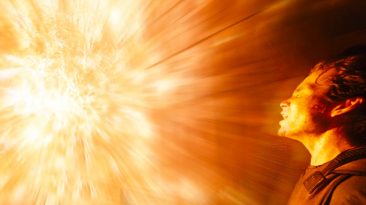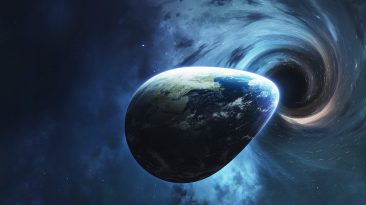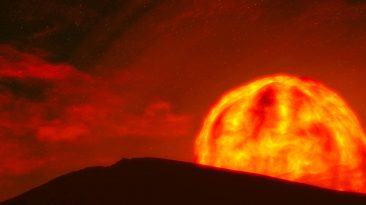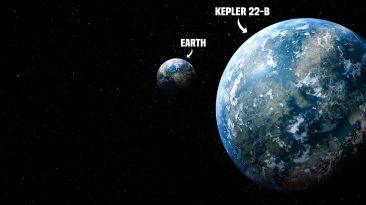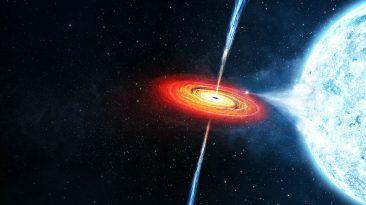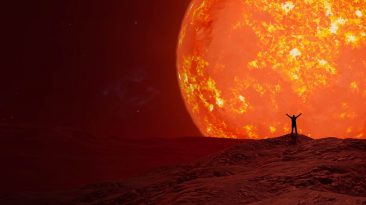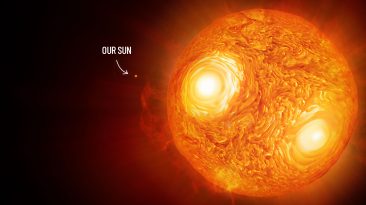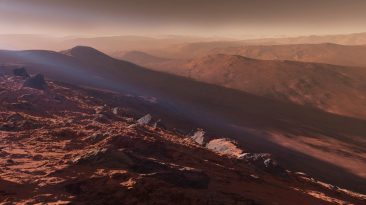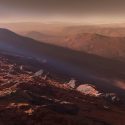Something incredibly strange is unfolding in our cosmic neighborhood, a powerful and unexplained gravitational force is pulling Jupiter, the largest planet in our Solar System, directly toward the Sun. While this scenario sounds like the plot of a science fiction thriller, rest assured, it is purely hypothetical.
But what if it were real? What kind of chaos would unfold if this gas giant, with its massive size and gravitational influence, suddenly barreled toward the heart of our Solar System?
The consequences would be nothing short of catastrophic, not just for nearby planets but for the delicate balance that keeps our entire celestial neighborhood stable. Let’s explore what might happen if Jupiter suddenly entered a deadly collision course with the Sun.
A Cosmic Game-Changer
Jupiter, the gas giant that’s 318 times more massive than Earth, has spent billions of years peacefully orbiting the Sun at a distance of about 778 million kilometers (484 million miles). For it to suddenly spiral inward, something extraordinary would need to disrupt that stable orbit.
The most plausible culprits? A rogue black hole or massive star passing dangerously close to our Solar System. These colossal objects could gravitationally interact with Jupiter, pulling it out of orbit or transferring enough energy to send it careening inward. But for this to affect Jupiter alone (and not disrupt the entire planetary lineup), the timing and trajectory of this rogue intruder would need to be precise beyond imagination.
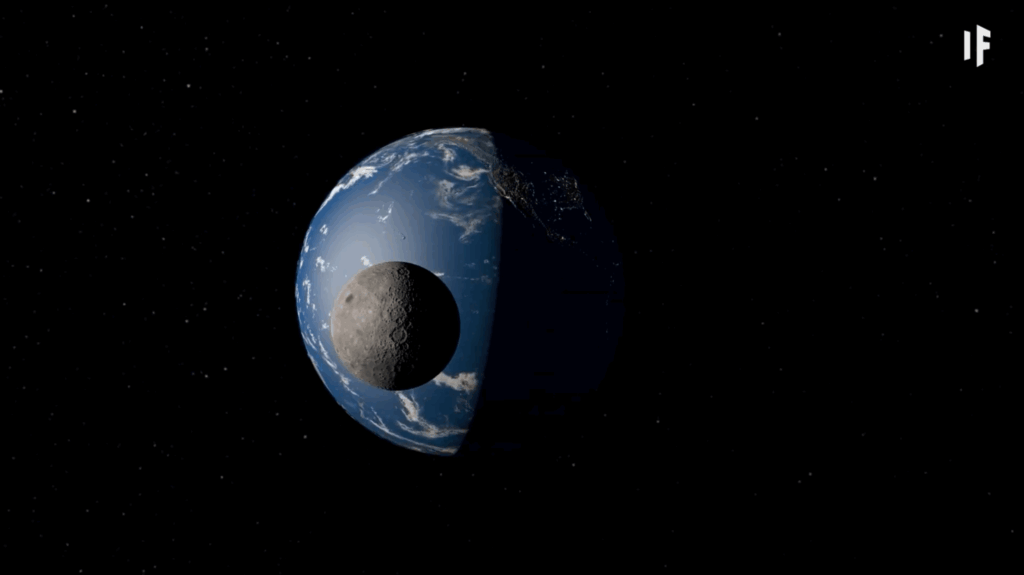
If such a cataclysmic event did occur, Jupiter wouldn’t slam into the Sun overnight. The journey would likely take decades or even centuries. As the Sun’s gravity gradually reeled it in, Jupiter’s orbit would shrink in a process known as spiraling orbital decay. Slowly, the gas giant would draw closer, entering increasingly tighter orbits until it reached a point of no return.
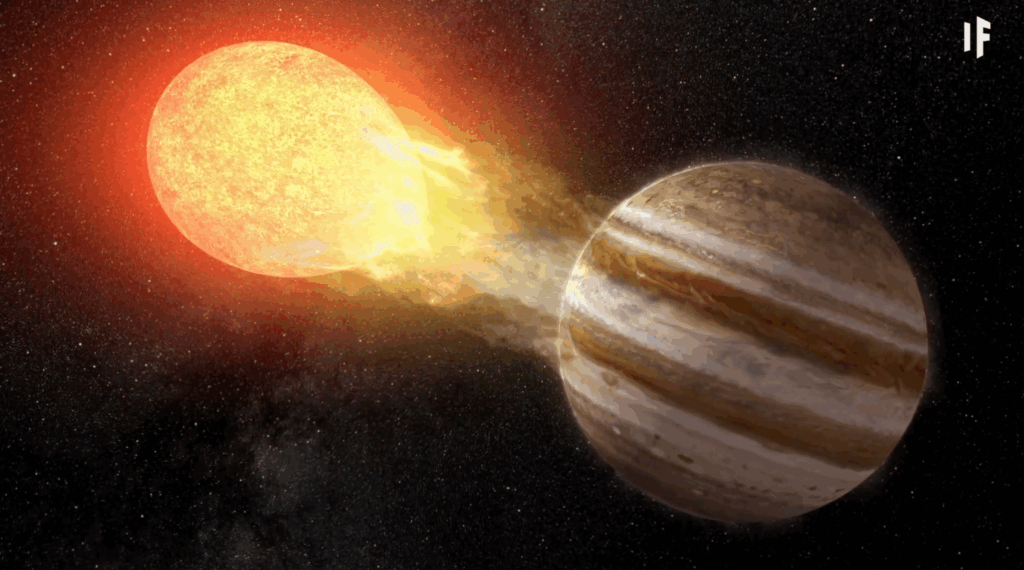
Eventually, Jupiter would cross the Roche limit, a critical boundary just under 900,000 kilometers (556,000 miles) from the Sun. At this range, the Sun’s tidal forces would begin to tear Jupiter apart. Its perfectly round shape would distort into an oblong, stretched form. The planet would begin to disintegrate, its atmosphere forming a glowing ring of gas and dust around the Sun, known as an accretion disk.
Would the Sun Get Bigger?
Since both the Sun and Jupiter are primarily composed of hydrogen and helium, you might wonder: would the Sun become larger or more powerful after swallowing the gas giant?
In short, not by much. Jupiter is massive compared to other planets, but it’s only about 0.1% the mass of the Sun. Absorbing it would cause the Sun to shine a bit brighter for a brief period, as it converts Jupiter’s mass into energy. Earth would see slightly more sunlight and perhaps even a visible brightening in the sky as Jupiter fades away.
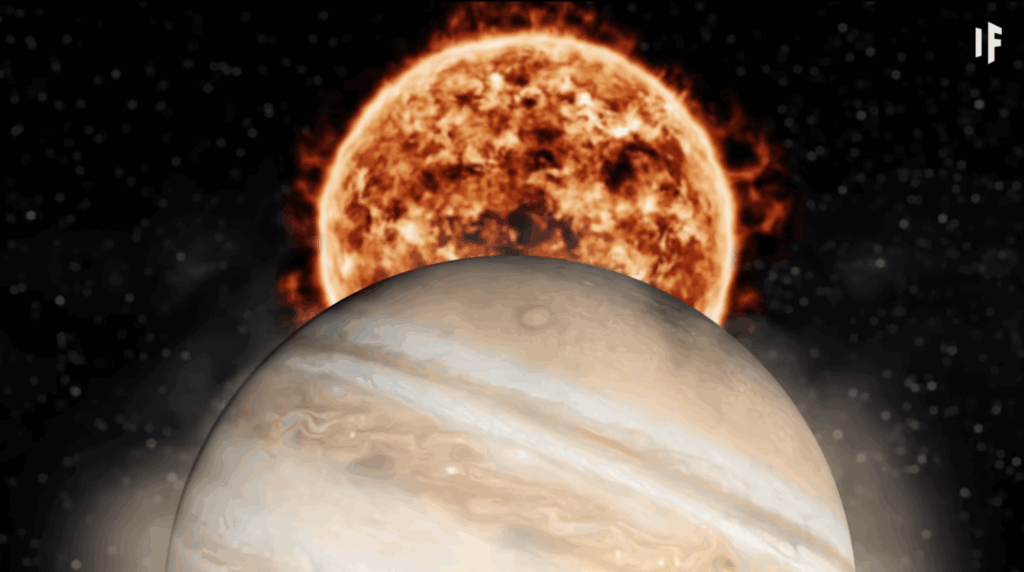
A Hidden Risk for Earth
The real danger for Earth wouldn’t come from an energy surge, but from what Jupiter leaves behind: a massive gravitational vacuum. For billions of years, Jupiter has acted as the Solar System’s protector, using its immense gravity to attract and deflect comets and asteroids that might otherwise strike the inner planets.
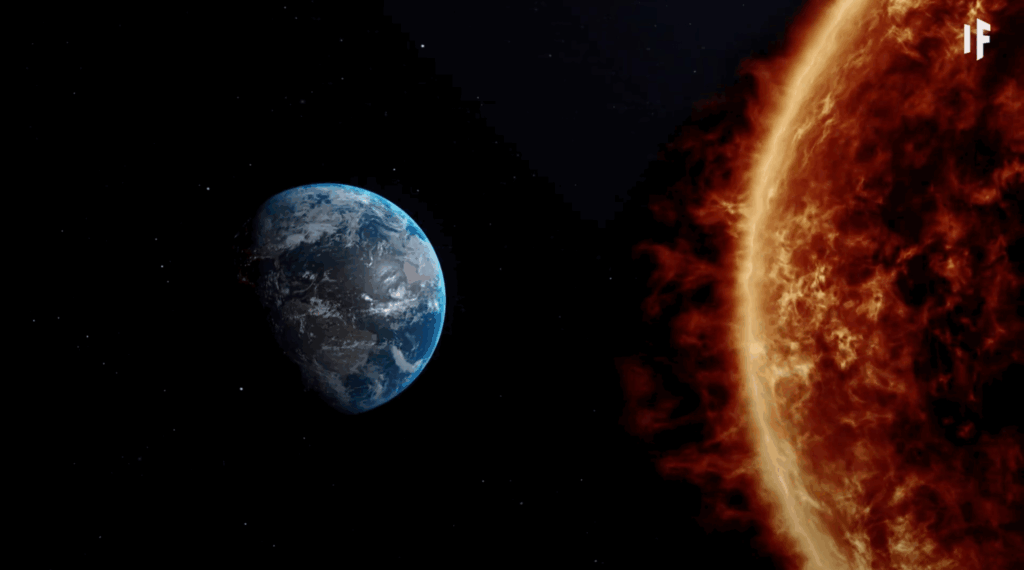
Without it, Earth would be exposed to more frequent and potentially devastating impacts from space debris, including called “planet killers.” The loss of this cosmic shield could dramatically increase the risk of extinction-level events.













